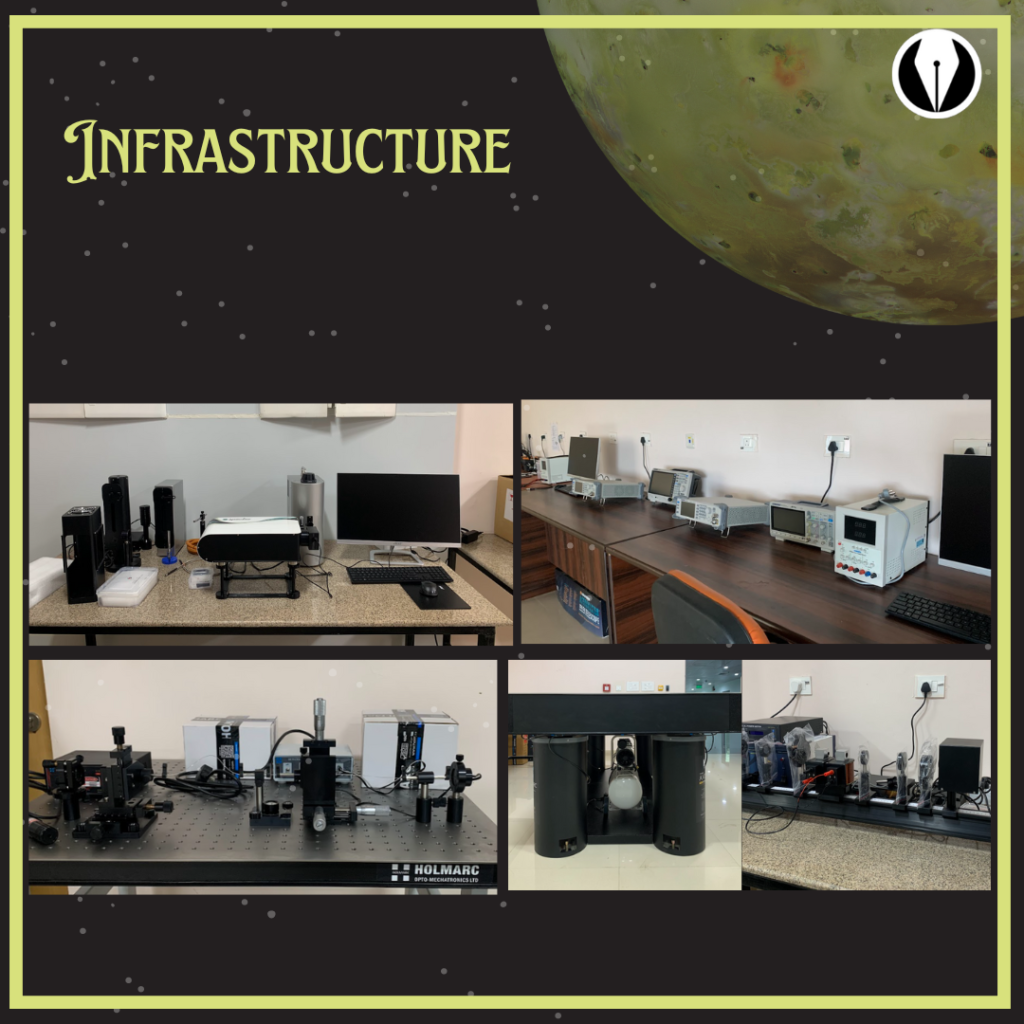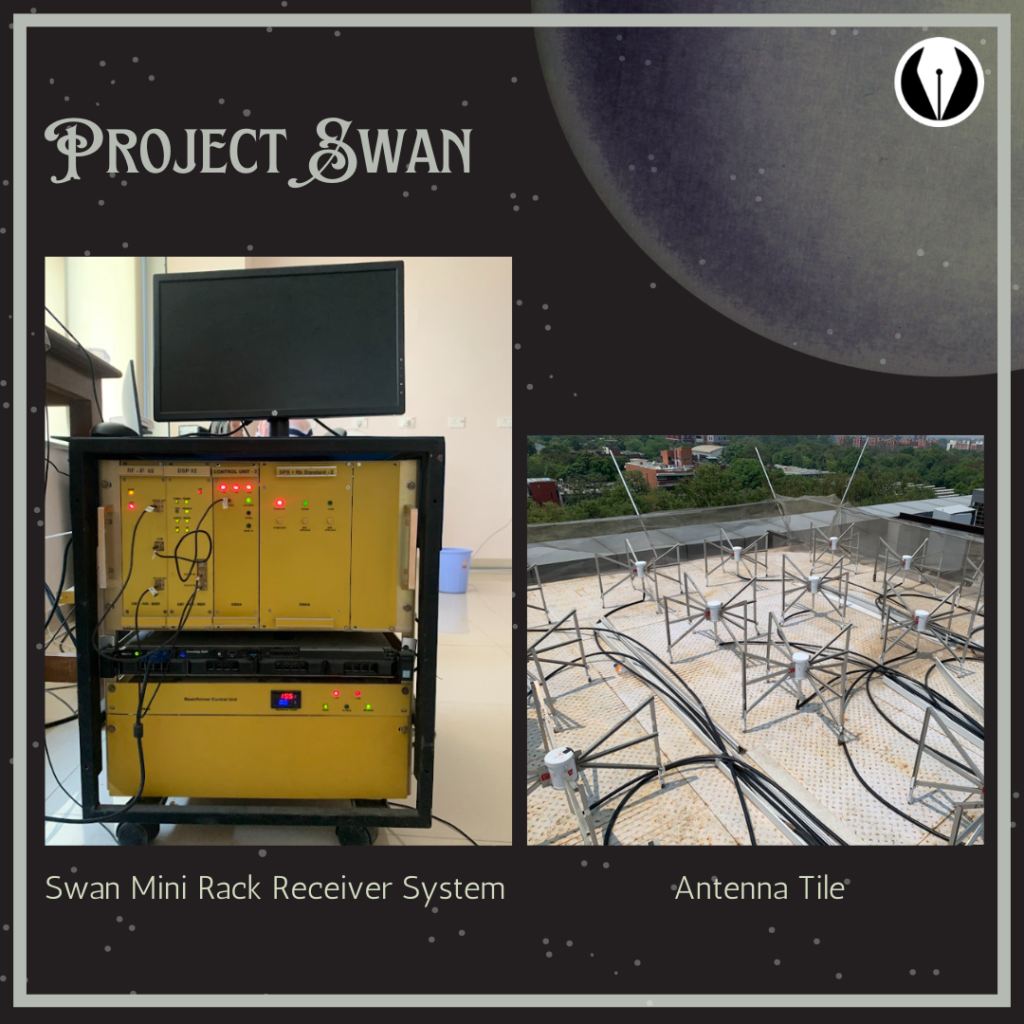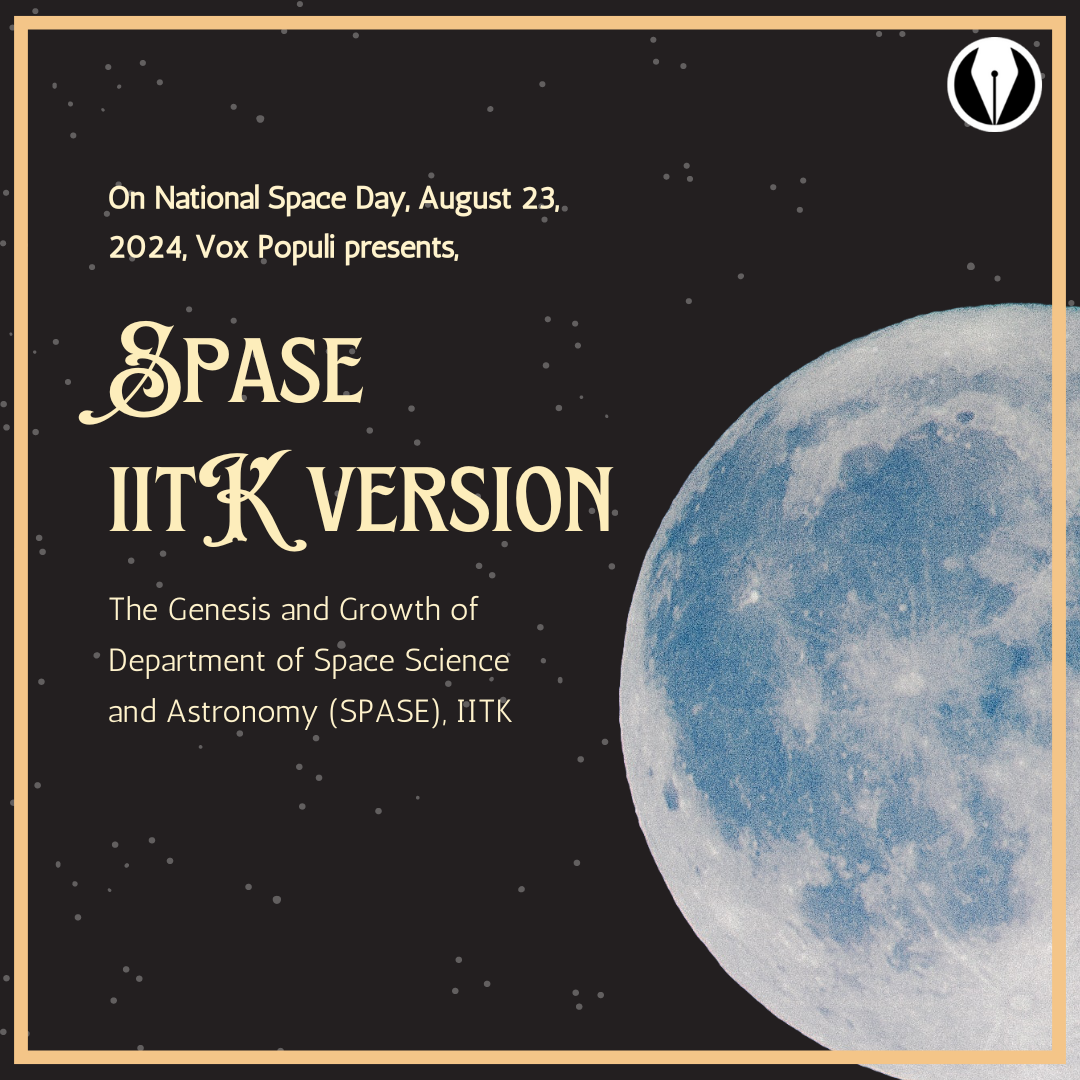Disclaimer: Vox Populi, IIT Kanpur, is the exclusive owner of the information on this website. No part of this content may be duplicated, paraphrased, or interpreted in any other way without written consent from Vox Populi. If you want to reproduce any of the content on this page, please contact our chief editors directly or reach out to us by email at voxpopuli@iitk.ac.in.
The field of Space Science and Astronomy has progressed significantly in recent years. India, along with many other countries, is actively exploring space and has ambitious plans for future missions aimed at achieving scientific and technological advancements.
Despite this progress, a few years ago, India, and IIT Kanpur in particular, faced a gap in educational offerings in the field of astronomy and space engineering. According to Prof. Pankaj Jain, Head of the Department of Space, Planetary & Astronomical Sciences & Engineering (SPASE), IITK, “In India, while many research institutes contribute significantly to the field of astronomy, such as ARIES in Nainital, the National Center for Radio Astrophysics in Pune, and the Raman Research Institute in Bangalore, these institutions primarily focus on research rather than education. Though some offer PhD programs, they generally do not provide undergraduate or Master’s degrees. Historically, academic involvement in astronomy in India has been limited, but this trend is now changing and expanding.”
The Inception
The concept for the department was introduced quite a while ago, around 2018. However, it got delayed due to COVID and other factors. And then there were several reviews before it actually took shape.
The department followed a structured process to establish itself. Initially, a proposal was formulated by either an individual or a group of members. This proposal then underwent an initial review within the institution, involving feedback from various departments. Following this, the Educational Policy Committee (EPC) conducted a critical review of the proposal. After the EPC’s evaluation, the proposal was returned to the departments for additional feedback. It was then reviewed by a National Advisory Committee, consisting of prominent experts in the relevant field, before proceeding to the Academic Senate. Once the Academic Senate approved the proposal, it was finally submitted to the Board of Directors for the final decision.
After completing this rigorous process, the SPASE department was officially established on January 12, 2022, under the leadership of then-Director Prof. Abhay Karandikar of IIT Kanpur.
The Challenges
Establishing the SPASE department at IIT Kanpur presented several significant challenges. One of the foremost issues was determining the viability of job opportunities for graduates. With ISRO being the main employer for space roles in India, there were concerns about sufficient job opportunities to justify the department. Assessing the job market was crucial to ensure meaningful employment for graduates.
Funding posed another significant hurdle. The department required substantial financial resources to support research, especially for hardware and experimental work. Initial funding of 3 crores from IIT Kanpur was allocated, but it has already been utilized. To establish a solid foundation, the department estimates that around 10 crores will be necessary, with a long-term goal of 50 crores to support the recruitment of additional faculty and ongoing initiatives. Securing this level of funding has been an ongoing challenge, though the department has obtained some support from the Space Technology Cell and IIT Kanpur.
Another challenge was building awareness about the new department. Initial efforts to promote the department faced obstacles, with many on campus unaware of its focus. To address this, the department is actively working to increase its visibility and attract students through outreach programs.
Space considerations present another substantial challenge. The department requires large lab spaces to accommodate the extensive hardware. Efforts are underway to acquire a space-qualified detector from the Tata Institute of Fundamental Research (TIFR), which will be used to teach students about space-qualified instruments and their operational standards. The department is also exploring the potential of launching this instrument once it is fully operational.
The complexity of working with hardware, as opposed to software, is evident. Space science involves large-scale projects such as rockets, observatories, and telescopes, all of which demand significant space and resources. The integration of hardware into the curriculum and the development of physical infrastructure underscores the department’s commitment to advancing space science education and research despite these considerable challenges.
Infrastructure
The SPASE department is currently staffed by seven full-time faculty members, complemented by Dr. Prashant Sharma, a joint faculty member, and two visiting faculty members. Additionally, Dr. Deepak Dhingra from the Earth Sciences Department has been closely associated with SPASE.
The SPASE department features cutting-edge facilities to advance its research and educational goals. The Space Instrumentation Lab is equipped with charged particle, gamma-ray, and X-ray detectors, essential for monitoring space environments and serving as a student training ground. The Optical and Infrared Astronomy Lab offers optical instruments and a telescope, focusing on adaptive optics to enhance observational accuracy.

The Radio Astronomy Lab is setting up experiments and a large antenna for the SWAN network, a national project aimed at creating a large-scale telescope. The SWAN project proposes a nationwide radio astronomy network with 1000 sq. m arrays at multiple locations, including one currently at IIT Kanpur’s SPASE department. Operating at 50-500 MHz, the network will study fast and slow radio transients and high-resolution imaging. This initiative will involve over 40 institutes across India and train hundreds of students in advanced radio astronomy research.
For more information, look here.

The Planetary Science Lab models planetary phenomena and includes a Planetary Geology Lab for studying planetary rock samples. Additionally, the Data Analysis Lab provides advanced computer systems for analyzing astronomical data. Collaboration with the Civil Engineering Department Lab, located near the airstrip, supports geodesic studies and space-based observations.
Students’ Participation
Regarding student enrollment, the department currently has 12 Ph.D. students. The M.Tech program began with modest enrollment: one student in the first year who left for a job, and two students in the second year, who also departed for similar reasons. The department is working to attract more students through the GATE exam and is optimistic about increasing enrollment in the future.
The SPASE department at IIT Kanpur envisions growth and innovation over the next two to three years. The primary goals include expanding the faculty to attract experts in rocket control, satellite operations, and space technology, with plans to collaborate closely with ISRO. A key initiative is to establish a center for payload development to train students in designing and building space-qualified payloads. The department also aims to delve into exciting areas like space settlements, exploring challenges related to extraterrestrial habitats. Ensuring that courses remain aligned with global advancements is a priority, addressing the need for updated and relevant education. Additionally, fostering industry partnerships is crucial. The department seeks to collaborate with industries and startups on joint projects.
Prof. Pankaj Jain emphasized, “We are committed to leading in space exploration research and inspiring students to tackle the engineering challenges of venturing beyond Earth. IIT Kanpur’s strong intellectual foundation positions us perfectly to drive these pioneering efforts and prepare for humanity’s future in space.”
The response to the Space Department’s research initiatives at IIT Kanpur has been promising. The department has observed significant initial interest in its courses, particularly those focused on astronomy and planetary science. Upcoming additions, such as a course on space technology and an undergraduate course offering a broad overview of the field, are expected to further boost interest.
Research
Despite being in its early stages, the department has already achieved notable research milestones. For example, a recent collaboration with the Cosmic Ray Observatory led to the discovery of a subtle deviation in the cosmic ray spectrum around 160 TeV. This intriguing finding is set to be featured in an upcoming publication. Additionally, research utilizing data from ASTROSAT, India’s pioneering space-based science observatory, has provided new insights into neutron stars and their flux variations, contributing to the understanding of their equation of state.
Dr. Ishan Sharma’s work on asteroid formation has also yielded valuable findings, enhancing our understanding of how asteroids take shape.
Notably, Dr. Prashant Pathak discovered a new giant planet, Epsilon Indi Ab, orbiting a Sun-like star. His research has been published in Nature. Read the research paper here.
Final Frontier
As we explore new frontiers in space science, the SPASE department at IIT Kanpur is leading groundbreaking research and innovation. Their commitment to advancing space exploration and nurturing future scientists highlights India’s growing role in cosmic discovery.
Vox wishes SPASE continued success and a Happy National Space Day to all.
Written by: Joel Bansal, Saatvik Gundapaneni, Vidhi Chordia
Edited by: Mayur Agrawal
Designed by: Mayur Agrawal, Vidhi Chordia











